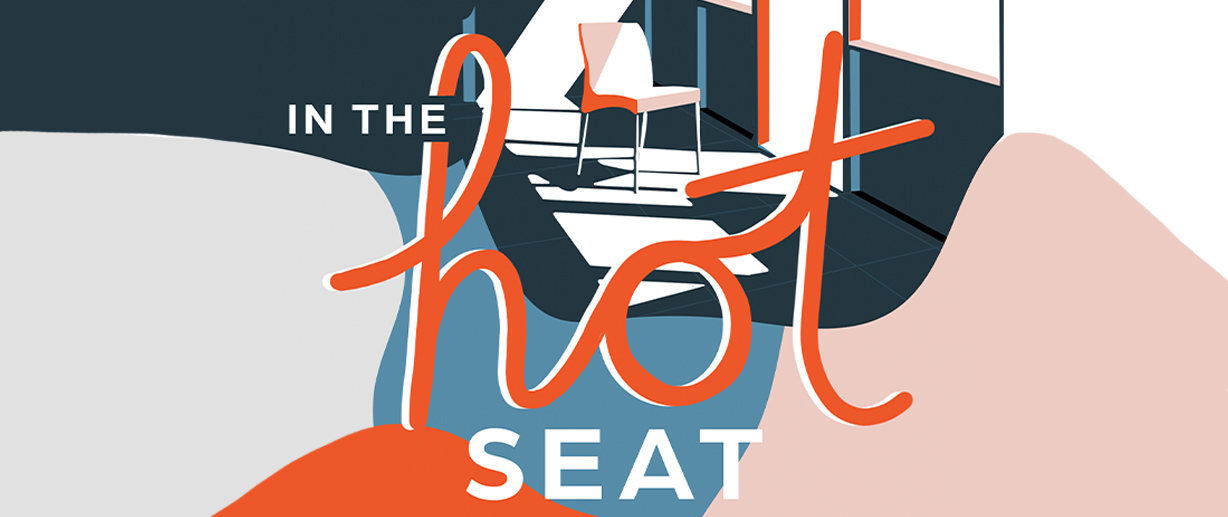Grant Blaylock ’21 has been interviewed three different times by three different physicians to help him prepare for the medical school interviews that he has lined up this spring. He hasn’t had to pay for the service because Wofford’s medical school mock interview program is offered free of charge by alumni, parents and friends of the college.
“Mock interviews are so important because the interview is a really big component of a medical school application,” says Dr. Natalie Spivey, associate professor of biology and coordinator of health careers advising. “The practice gives our students confidence so they can do well and get that acceptance letter.”
Blaylock, a biology major from Pawley’s Island, S.C., just completed a real interview with the Medical University of South Carolina in Charleston, and he says the practice paid off.
“My interview went really well. It was a lot of fun, actually,” says Blaylock. “The interviewers didn’t ask nearly as many tough questions as Dr. (Bill) James.”

As a junior, Blaylock did an interview with Dr. George Tyson ’72, who launched the program almost a decade ago and continues to recruit volunteers, organize interviews and mentor pre-med students. That first interview was on campus, with students and physicians participating in rounds of interviews face to face, with other opportunities for networking and socialization built into the day. In the fall, Blaylock completed a Zoom interview with Dr. Rayvelle Stallings, who learned of the program through her son, Marcus Stallings ’21, who is a participant as well. Finally, Blaylock interviewed with James in January at his office in Spartanburg.
“I’m not here to give you catchphrases or put words in your mouth,” says James as he and Blaylock sat down together preparing for the interview. James played the roles of different physician interviewers, starting with easy questions and moving to more difficult topics. “At this point, raising a GPA is tough. Improving an MCAT score is doable but tough, but anyone can improve their public speaking, interaction and interview skills. The more uncomfortable you are now, the more comfortable you’ll be during your interview.”
Tyson can still remember the discomfort and stress he felt during his first medical school interview at Cornell University. “I broke out into a cold sweat,” he says. “Our primary goal is to reduce the anxiety, to make the first real interview feel like the second. The secondary goal is to bring our students up to speed regarding successful interviewing techniques.”
The pre-med mock interview program took root after a conversation Tyson had with several student-athletes on the college’s football team who were planning to apply for medical or dental school. Tyson, who had served on admission interview panels for his other alma mater, Duke University, realized that Wofford alumni could enhance the already excellent work of Wofford faculty in the sciences and offer additional support for Wofford students. According to Tyson, about 20 professionals — doctors, dentists, veterinarians and pharmacists — participate in the program; some are regulars, some conduct interviews every few years as their schedules allow or if Wofford students are interested in their specialty.

“The feedback from students has been very good,” says Tyson. “A few years ago, the dean of the University of South Carolina School of Medicine commented on how well prepared Wofford students were.”
Blaylock says he chose Wofford because of its reputation for medical school preparation. He has shadowed physicians, worked as a nursing assistant at a hospital in Murrells Inlet, S.C., participated in the college’s clinical internship program, taken challenging classes and now has participated in the mock interview program. He also studied abroad through an international public health course that took him to Washington, D.C., South Africa and Brazil. Blaylock did research on infectious disease there and lived with host families.
“The diversity of educational opportunities that I’ve had at Wofford made a difference in my interview,” says Blaylock, who also is a member of the student-managed James-Atkins Investment Fund. “Wofford’s liberal arts emphasis has allowed me to learn other disciplines. I feel prepared for medical school and a career as a physician because of the support I received across the institution.”
by Jo Ann Mitchell Brasington ’89
